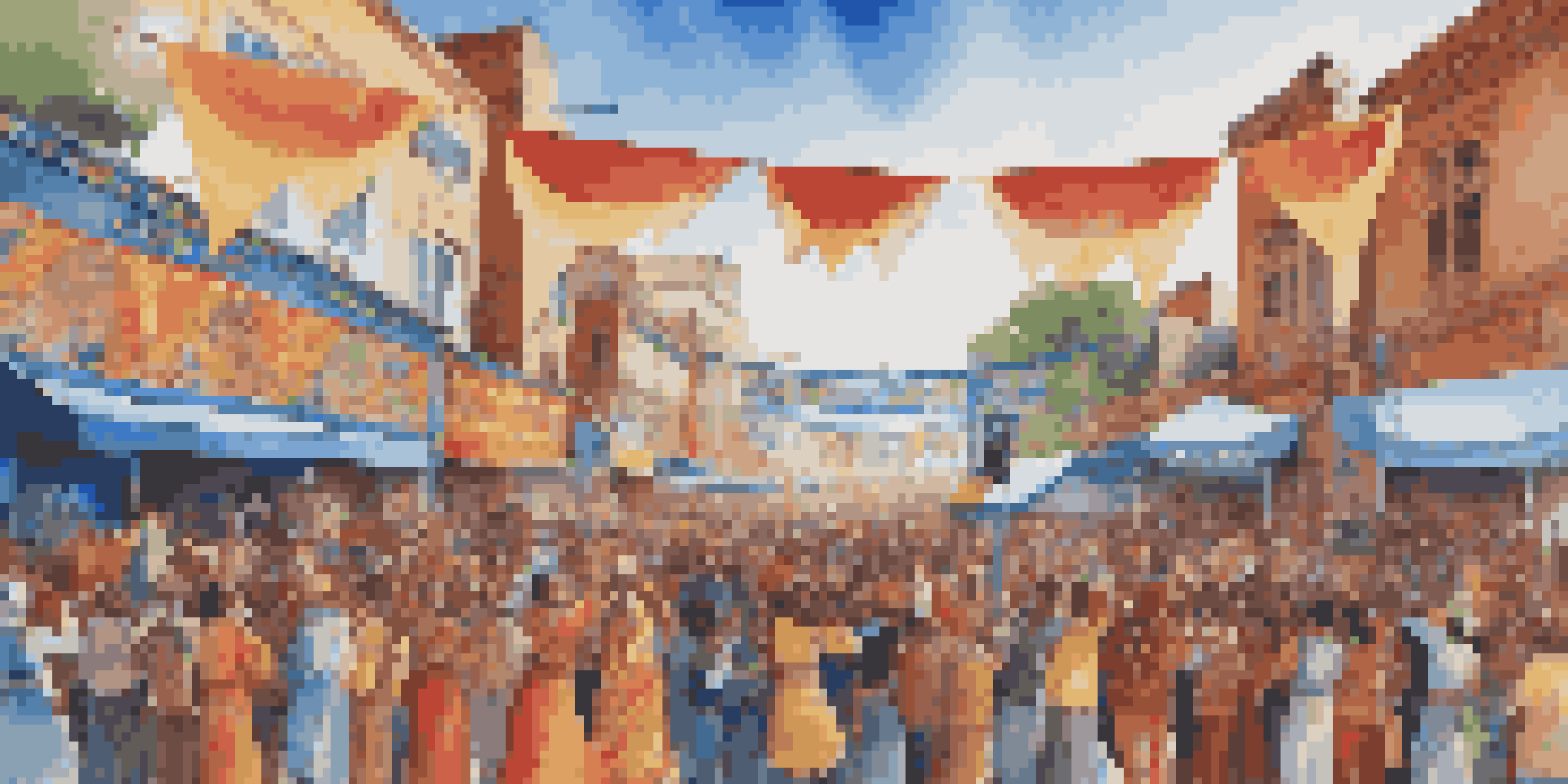The Role of Diversity in Addressing Cultural Appropriation in Music

Understanding Cultural Appropriation in Music
Cultural appropriation in music refers to the adoption of elements from one culture by artists from another, often without permission or understanding. This can lead to the commodification of cultural expressions, reducing rich traditions to mere trends. For example, when a popular pop artist appropriates a traditional style without acknowledging its origins, it can alienate the community from which it came. Recognizing this issue is the first step towards fostering a more respectful musical landscape.
The Importance of Diversity in Music Creation
Diversity in music creation enriches the art form, allowing various cultural perspectives to shine through. When artists from different backgrounds collaborate, they create a tapestry of sounds that reflects a multitude of experiences. This not only enhances creativity but also promotes mutual understanding and respect among communities. By embracing diversity, the music industry can celebrate rather than exploit cultural differences.
Cultural Appropriation Explained
Cultural appropriation in music involves adopting elements from one culture by artists from another, often without proper understanding, which can diminish the original cultural significance.
Cultural Sensitivity: A Key Component of Diversity
Cultural sensitivity involves understanding and respecting the different cultural backgrounds that exist in music. It encourages artists to consider the impact of their work on the cultures they draw inspiration from. By prioritizing cultural sensitivity, musicians can engage in meaningful dialogues with communities, ensuring their work honors rather than appropriates. This approach not only enriches their music but also builds stronger relationships across cultures.
Empowering Marginalized Voices Through Collaboration
Collaborative efforts between established artists and marginalized voices can create a more equitable music scene. When mainstream musicians invite lesser-known artists from different backgrounds to collaborate, it amplifies their stories and experiences. This empowerment fosters a deeper connection and understanding between diverse audiences. Ultimately, collaboration can serve as a bridge, transforming cultural appropriation into cultural appreciation.
Diversity Enriches Music Creation
Embracing diversity in music creation leads to richer artistic expressions and fosters mutual respect among different cultural communities.
The Role of Education in Promoting Diversity
Education plays a crucial role in promoting diversity within the music industry. By educating artists about the historical and cultural significance of the music they draw from, we can cultivate a more informed and respectful community. Workshops, seminars, and online courses can provide valuable insight into cultural practices and traditions. This knowledge empowers artists to engage with cultures authentically, reducing the likelihood of appropriation.
Audience Responsibility: Advocating for Authenticity
Listeners also play a vital role in addressing cultural appropriation by advocating for authenticity in music. By supporting artists who honor their cultural roots and engage in respectful representations, audiences can influence industry standards. This collective responsibility encourages musicians to think critically about their influences and the narratives they present. Ultimately, an informed audience can drive change and promote a more inclusive musical landscape.
Education Promotes Cultural Sensitivity
Educating artists about the cultural significance of their influences fosters respect and reduces the risk of cultural appropriation.
The Future of Music: A Diverse and Inclusive Landscape
As we move forward, the music industry must strive for a future that values diversity and inclusivity. This means creating spaces where artists from all backgrounds can thrive and share their stories authentically. By fostering an environment of collaboration and respect, we can mitigate issues of cultural appropriation. Embracing diversity is not just a trend; it is essential for the evolution of music as a vibrant and dynamic art form.
Conclusion: Celebrating Diversity in Music
In conclusion, diversity plays a pivotal role in addressing cultural appropriation in music. By prioritizing collaboration, education, and cultural sensitivity, the industry can create a more equitable space. Celebrating diversity means honoring the rich tapestries of cultural histories that inform music today. As we continue to navigate these complex conversations, let’s work together to create a musical landscape that values authenticity and respect.